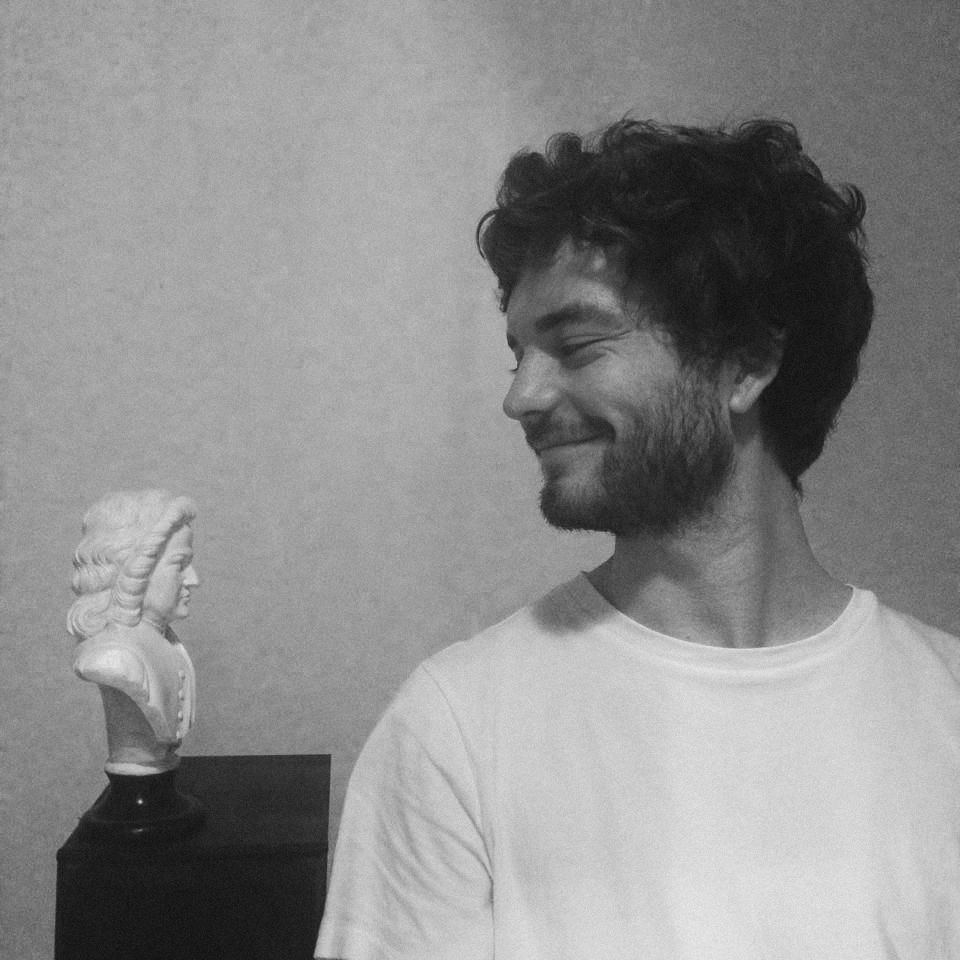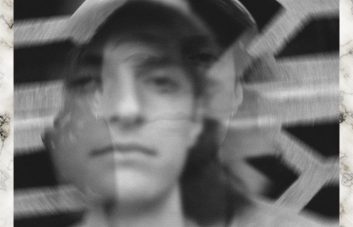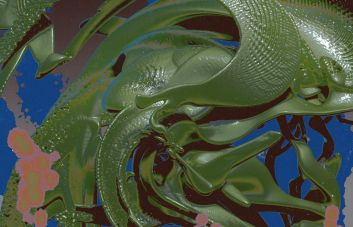To many, classical and club music inhabit completely different worlds. For Jack Sheen, however, he brings influences from both in his own work. A recent transplant to London from Manchester, Jack is a classically-trained composer and conductor who has worked alongside the London Symphony Orchestra, BBC Philharmonic Orchestra and the Lucerne Festival Academy Orchestra among others, as well as currently running a successful concert series ‘ddmmyy’ with Tom Rose from Slip Discs. What distinguishes Jack is the breadth of his influences, however, with a keen interest in jazz and techno in particular. His most recent work, the Jupiter O.S.T. EP, was originally created as a soundtrack for George Haydock’s film Jupiter and in turn made into a more coherent release. Percussive by nature, the release channels Sun Ra, Steve Reich and Iannis Xenakis as well as conscious nods to the intensity and density of the likes of Mark Fell and Russell Haswell. These influences have been put together in a mix by Jack for Generic Greeting collective which paints a picture of who and what inspired him for the record both directly and indirectly. We’re incredibly pleased to premiere ‘Jupiter/Saturn’ from the EP and Jack kindly spoke to us about his musical background, ddmmyy and, of course, the EP.
Let’s talk about your general musical background then, tell me a bit about it and how it brought you to this record.
“Well I always, always wanted to be a musician since I was probably, like, one. And I basically associated that with whatever I was listening at the time. When I was five and listening to my dad’s 80s pop records, I basically just wanted to be an 80s pop star. I got into experimental music as a teenager. Initially I wanted to be a producer for bands, I was really into Dave Sitek and Radiohead and Battles. Then I started listening to classical music, I was listening to lots of jazz and playing a lot of improv stuff when I heard Steve Reich and some early Stravinsky ballets and decided that I really needed to read and write music, and wanted to compose and conduct. I kind of dropped the electronic stuff for a while, I was still listening but I was focussing on other stuff. Then when I got back into it when I was at music college I learned how to use Logic and I think this record is a pretty fair reflection of those things. Not necessarily what I was listening to at the time but what I was thinking about, so lots of the kind of chaotic improvised music. Lots of things that are kind of slow and static. I really like minimal music but my music is kind of a lot more dense and intricate. I really love sparse music but I just can’t make it [laughs]. [The record] is so piled on, so there’ll be one idea but it’ll be articulated by three or four things at once… it’s really layered. So I don’t really know how much that reflects on the record.
Whenever I was listening to the mix, one thing that stood out for me in particular as an influence was the Iannis Xenakis track, in terms of the rhythms you’ve used.
“Yeah [Xenakis] said this really amazing thing about music where it’s like “The sensual shock must be just as forceful as when one hears a clap of thunder or looks into a bottomless abyss” and I remember reading that when I was like 16 and that stuff just stays with you. Even though a lot of my music now is conceptually driven, I’ve always had that in the back of my mind. The track on the mix is so layered and dense and, yeah, I think that’s a pretty good example of what I went for in the EP. The next track is a string quartet piece by Ligeti, which has been a really big influence on me. It’s made up of all these static sounds, he calls it micropolyphony, where you’ve just got all these sounds bubbling along at such a rate so you can’t really distinguish between them, it just becomes a meta thing. Like listening to crickets, it just become a drone even though it’s made up of individual things with their own distinct rhythm and that’s the kind of approach I go for in a lot of my music, not just this release. I guess on Logic it’s kind of easy just to pile shit on top of each other, and that’s what I ended up doing [laughs]”
So you created this release for a particular purpose, which was to soundtrack the film ‘Jupiter’, so how did you go about that? Did you bounce the ideas off the director?
“It must have been over a year ago and George [Haydock, Jupiter director] told me about this film and it sounded really good. George is a huge Sun Ra fan, and he knew the film that would be constructed around the structure of the planets and he wanted the soundtrack to be all percussion. So I sort of walked into this amazing limitation. It was really good to have a director who is really musical, and makes music. I was always hesitant to make film stuff because I always find that people who makes films don’t really know a lot about music, in my experience, particularly in Hollywood but obviously that’s a bit irrelevant with me [laughs]. George gave me a lot of freedom, so he’d send me six or seven edits of the film and I’d make them to that over the few weeks it took me to write the music. There was only a couple of times where he’d send stuff back and say like “I think for this scene it needs to be a bit warmer” or whatever. There was a little bit of back and forth. And with the EP I just had these cuts of the track and I decided I wanted to make something coherent out of that.”
It was interesting that percussion was used because to my mind for a lot of spacey-themed films they tend to soundtrack it with synth music…
“Well the starting point was just Sun Ra. I think Sun Ra is an amazing human being. His relationship with his notion of intergalactic life is awesome, in the truest sense of the word. It made a lot of sense for me and George. A lot of people say this but when you’re limited, you’re at your most created. I had to forgo a lot of what I take for granted to make it work. It is an electronic piece of music, its very processed even though it’s percussive. Lots of distortion.”
So through that do you think it’s influenced by techno?
“Well my music is influenced by techno because its quite repetitive and static and about texture. That’s why I love going to clubnights from the start to the end, because I love getting that sense of architecture, so in that sense it’s been influenced by techno. The sounds themselves are influenced in particular by like, Pete Swanson, or 1991’s techno stuff on Opal Tapes. Just stuff where the beats are played really hard and just really noisy. But I never push the influences too far. I take influences from extreme ends of the spectrum but never go that far myself, so I’ll offer an insight into them without actually going that hardcore myself. “
So space is something that’s influenced electronic music since it’s existence, what do you think it is about it that influences musicians?
“Well for me it was the film and the structure of the planets, I didn’t sit in my room and have a revelation about the planet Mars or anything [laughs]. But yeah, space is in music, physical space. Space between sounds, a lot of in it in minimal music and not a lot in dense music. The notion of space is so important in music and anything that stimulates people’s concepts of that is really good and that’s why certain musicians get tied to whether its a city or countryside they live in.”
You put a Rhythm & Sound track in the mix and I always feel their sense of space is incredible.
“Yeah! It’s amazing, it blows my mind. It’s so intricate and their use of reverb is perfect.”
So you’re moving to London quite soon so we may as well talk about your ddmmyy series that you’ve been doing for the past while. How did it come about?
“It started in 2012 and then the original group of people who did it all went off and did other stuff but I pushed it on a bit and it’s blossomed into something I’m really proud of. Every series of the series has been a bit of a step up and I plan on keeping that up in London. We try and pack out smaller spaces instead of like, concert halls. That’s why the shows in [Manchester bar] Sandbar were so good. It’s not perfect sound-wise but the vibe is amazing. For the first gig we had Otto Willberg playing over a PA and it was so sweaty, it was almost like a gig. We’ve had Laurie Tompkins too. He’s got two tapes coming out on Slip Discs which should be wicked. ddmmyy is about contextualising things, and finding new ways to offer a new perspective on them. It’s impossible experience music in a vacuum…”
There’s always context.
“Yeah, whether its a clubnight, or an art gallery or whatever, to control that in an interesting way is really important nowadays because there’s just so much stuff. If you can really put things together that contextualise one another way.”
My own experience is mostly in club music, and my favourite DJs are always ones who make me think about music in ways I’ve never thought about before.
“Same for me really. A few years ago people started playing that Lumidee track ‘Never Leave You’ loads and the track is no different, but it was played in ways that gave it a new dimension. I was reading a Ben UFO interview where he said he often thinks five tracks in advance and it’s about getting to that track that creates the architecture of his set. Think that’s really interesting, how you contextualise. How do you get from F to R?”
Order Jack Sheen’s Jupiter O.S.T. from Bandcamp here.



